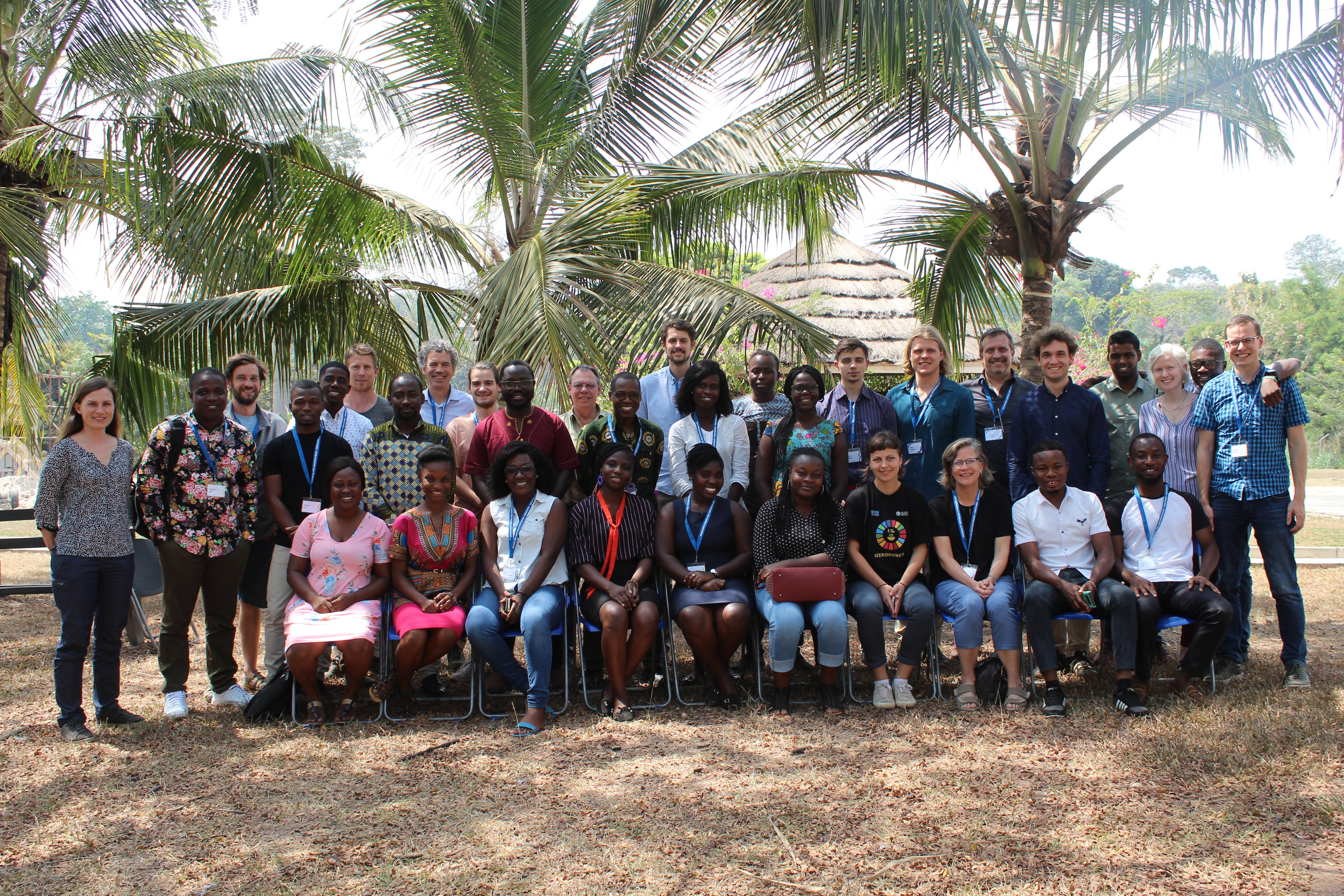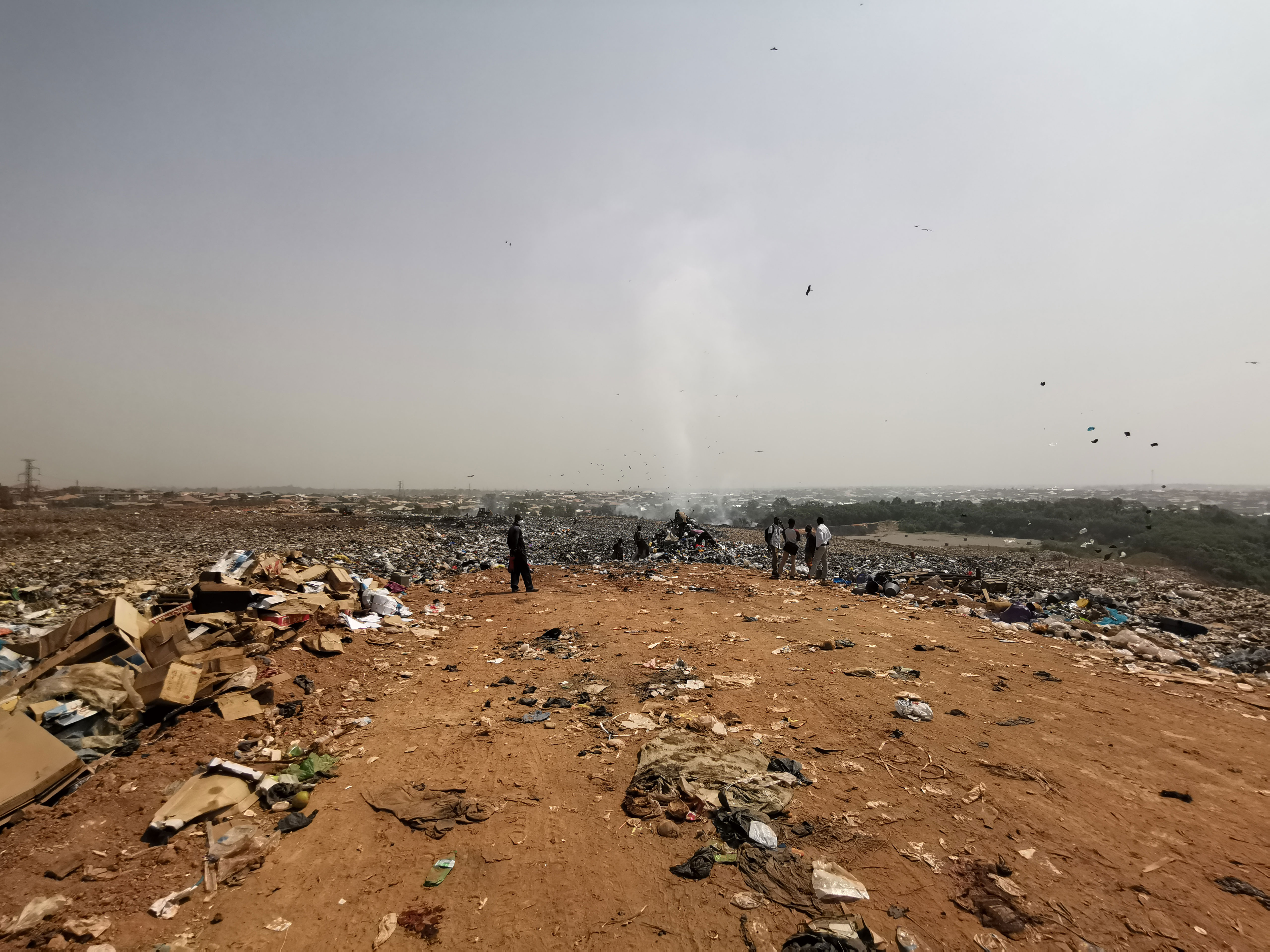
HLS students at the Winter School in Africa
3 - 7 February 2020 in Kumasi, Ghana
It was a tropical evening when we landed in Accra, the capital of Ghana, after a six and a half hour flight. Ghana is on the West African coast between Togo and the Ivory Coast. Immediately on arrival we felt the proximity to the equator. Here, temperatures rise to over 30 degrees during the day all year round and do not fall below 20 degrees at night.
Akwaba - Welcome!
Akwaba - this is how the people in Ghana say welcome. And this is how they welcomed us: with an open heart.
We visited Ghana as part of a winter school initiated by various Swiss universities (ETH, University of Applied Sciences FHNW, HSR) together with the umbrella organisation CLOC - NETWORK WATER AND LIFE (NEWAL) in cooperation with universities from Ghana, Liberia, Burkina Faso and The Ivory Coast. The host was the Kwame Nkrumah University of Science and Technology in Kumasi.
Exchange on the global goal for sustainable development: clean water & sanitation
The focus of the Winter School was an interdisciplinary and intercultural exchange on Goal no. 6 of the Sustainable Development Goals (SDGs): to ensure access to clean water and sanitation. The SDGs are 17 policy objectives formulated by the UN in 2015 with the aim of achieving sustainable development by 2030, both economically and ecologically.
 Participants at the Winter School Ghana 2020
Participants at the Winter School Ghana 2020
Four project teams were formed at the start of the week. Each was given a topic on the water problems in and around Kumasi, with the aim of developing feasible technical concepts and solutions, for example relating to mining and the environment. The aim here was to analyse how chemicals used in mining pollute drinking water. Another topic was lack of access to fresh water and to sanitary facilities in a slum in Kumasi.
Polluted drinking water, lack of hygiene and lack of sanitation
According to the World Health Organization (WHO), only 66% of the population in rural Ghana have access to clean drinking water. Polluted water, lack of hygiene and a lack of sanitary facilities often lead to diseases that can be life-threatening, especially for children.
 A Landfill Site in Kumasi
A Landfill Site in Kumasi
Why is that?
People in Ghana often lack an awareness of the wider context. For example, household waste is incinerated on the open road and chemicals and waste water are discharged untreated into canals or rivers. Mining causes heavy metals such as mercury to enter waterways, causing long-term harm to people and nature.
As part of our project we visited places where we experienced these problems first hand. The conditions in which children grow up and the enormous extent of environmental destruction affected us very deeply. The head of an affected community and a regional sanitation officer from Kumasi told us about their acute problems regarding the drinking water supply. A rice farmer from the neighbouring region also shared his concerns about the future. His fields are flooded three times a year and his harvest is uncertain.
First step: raising awareness for a clean and sustainable environment
We presented the results of our case studies at the end of the week. It became clear that the biggest challenge is not developing technical solutions but rather making people aware of environmental issues and finding ways to combine their traditional way of life with a modern perspective.
We have come to know the Ghanaians as a very open, friendly and joyful people despite adverse circumstances. This is exactly why we are looking forward to our new friends visiting us in Switzerland in August.
"The enormous extent of poverty and environmental destruction affected us deeply."
Michael Beister, student of environmental technology
"I was extremely impressed by the motivation and high frustration tolerance of the young Ghanaians and fellow students, despite the enormous challenges."
Patrik Eckert, student of environmental technology

